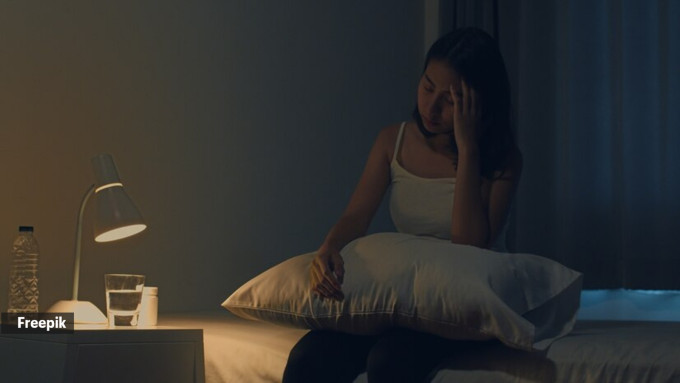If you experience stomach discomfort during times of anxiety, you may want to read this
Anxiety can manifest in surprising ways, including digestive issues. As such, ‘anxiety poops’ are very much a real phenomenon experienced by many people.
Mehezabin Dordi, clinical psychologist, Sir HN Reliance Foundation Hospital explains this phenomenon. “Anxiety activates the body’s stress response, largely mediated by the autonomic nervous system. This system controls involuntary bodily functions, including digestion. When a person is anxious, the ‘fight or flight’ response is triggered, releasing stress hormones like adrenaline and cortisol.”
 https://images.indianexpress.com/2020/08/1x1.png
https://images.indianexpress.com/2020/08/1x1.png
Gurleen Baruah, organisational psychologist and executive coach at That Culture Thing, continues, “ While these stress hormones prepare the body to confront perceived threats, they can inadvertently disrupt normal digestive processes, resulting in diarrhea. The gut’s high concentration of nerve cells makes it particularly sensitive to stress, highlighting the interplay between emotional well-being and digestive health.”
Specific psychological mechanisms or stress responses that directly lead to anxiety poops
The psychological mechanisms behind anxiety poops involve the understanding of stress response, says Dordi. “Anxiety increases arousal and vigilance, prompting the body to prepare for potential threats. The gut is highly sensitive to stress signals due to its dense neurons network (often called the ‘second brain’). Stress and anxiety can alter gut motility, secretion, and sensitivity, leading to symptoms like diarrhea.”
The psychological mechanisms involve more than just immediate stress responses, according to Baruah. Chronic anxiety can disrupt the balance of gut bacteria, she states, leading to ongoing digestive issues. “This imbalance, known as dysbiosis, can perpetuate the cycle of anxiety and gastrointestinal problems.”
Can anxiety-related bowel movements be differentiated from symptoms of gastrointestinal disorders
Differentiating anxiety-related bowel movements from other gastrointestinal disorders like IBS can be challenging because symptoms overlap, admits Dordi. However, key differences include:
Trigger Identification: Anxiety-related symptoms typically correlate with periods of heightened stress or anxiety, while IBS symptoms might not always have an identifiable stressor.
 Adopting a healthy lifestyle can have a positive impact on both mental and physical health. (Source: Freepik)
Adopting a healthy lifestyle can have a positive impact on both mental and physical health. (Source: Freepik)
 Symptom Consistency: IBS often presents with chronic symptoms and may include a pattern of alternating diarrhea and constipation, whereas anxiety-induced symptoms might be more episodic.
Symptom Consistency: IBS often presents with chronic symptoms and may include a pattern of alternating diarrhea and constipation, whereas anxiety-induced symptoms might be more episodic.
Additional Symptoms: IBS may be accompanied by other symptoms such as bloating, cramping, and pain relief after bowel movements, which might not be as prominent in anxiety-induced gastrointestinal issues.
Strategies or treatments recommended for individuals experiencing anxiety-induced gastrointestinal symptoms
Baruah says, “Managing anxiety-induced gastrointestinal symptoms involves a combination of strategies and treatments that address both the psychological and physical aspects of the condition.” Here are some recommendations by her:
Stress management techniques: Engaging in stress-reducing activities such as yoga, meditation, deep breathing exercises, and progressive muscle relaxation can help calm the mind and body.
Healthy lifestyle changes: Adopting a healthy lifestyle can have a positive impact on both mental and physical health. This includes eating a balanced diet, as well as staying hydrated and avoiding excessive caffeine and alcohol consumption. Regular exercise is also beneficial.
Mindful eating: Practicing mindful eating involves paying attention to the sensations of eating and being fully present during meals. This can help individuals become more aware of their body’s hunger and fullness cues, reducing the likelihood of eating in response to stress.
Seeking professional help: Consulting with a therapist or counselor who specialises in anxiety disorders can provide valuable support and guidance.
Medication: In some cases, medication may be prescribed to help manage anxiety and its physical symptoms.
Holistic approaches: Incorporating holistic approaches such as acupuncture, herbal supplements, or aromatherapy may complement traditional treatments. However, it’s essential to consult with a healthcare professional before trying these methods to ensure they are safe and appropriate.
Disclaimer: The copyright of this article belongs to the original author. Reposting this article is solely for the purpose of information dissemination and does not constitute any investment advice. If there is any infringement, please contact us immediately. We will make corrections or deletions as necessary. Thank you.
